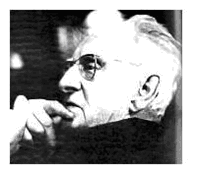A.S. Neill’s Summerhill
Of all the experiments in progressive education, A.S. Neill’s ‘Summerhill’ is perhaps the most famous in which it transformed the intersubjective relationships of learning from teacher- and curriculum-centred authority to child-centred authenticity. A.S. Neill (1883–1973) was the founder of a progressive school, Summerhill, in England in 1924. In this school, he implemented his ideas about pupil freedom. These ideas, and the school, became world famous in a series of books Neill wrote about the Summerhill experience.

What is Summerhill like? Well, for one thing, lessons are optional. Children can go to them or stay away from them—for years if they want to. There is a timetable, but only for the teachers.
The children have classes usually according to their age, but sometimes according to their interests. We have no new methods of teaching, because we do not consider that teaching itself matters very much. Whether a school has or has not a special method for teaching long division is of no significance, for long division is of no importance except to those who want to learn it. And the child who wants to learn long division will learn it no matter how it is taught.
Children who come to Summerhill as kindergarteners attend lessons from the beginning of their stay; but pupils from other schools vow that they will never attend beastly lessons again at any time. They play and cycle and get in people’s way, but they fight shy of lessons. This sometimes goes on for months. The recovery time is proportionate to the hatred their last school gave them. Our record case was a girl from a convent. She loafed for three years. The average period of recovery from lessons aversion is three months …
Winfred, aged thirteen, a new pupil, told me that she hated all subjects, and shouted with joy when I told her she was free to do exactly as she liked. ‘You don’t even have to come to school if you don’t want to,’ I said.
She set herself to have a good time, and she had one—for a few weeks. Then I noticed that she was bored.
‘Teach me something,’ she said to me one day; ‘I’m bored stiff.’
‘Righto!’ I said cheerfully, ‘what do you want to learn?’
‘I don’t know,’ she said.
‘And I don’t either,’ said I, and left her.
Months passed. Then she came to me again. ‘I am going to pass the college entrance exams,’ she said, ‘and I want lessons from you.’
Every morning she worked with me and other teachers, and she worked well. She confided that the subjects did not interest her much, but the aim did interest her. Winifred found herself being allowed to be herself …
My view is that a child is innately wise and realistic. If left to himself without adult supervision of any kind, he will develop as far as he is capable of developing. Logically, Summerhill is a place in which people who have the innate ability and wish to be scholars will be scholars; while those who are only fit to sweep the streets will sweep the streets. But we have not produced a street cleaner so far. Nor do I write this snobbishly, for I would rather see a school produce a happy street cleaner than a neurotic scholar …
Often … girls … who never go to lessons … spend much time with needlework, and some, later in life, take up dressmaking and designing. It is an absurd curriculum that makes a prospective dressmaker study quadratic equations or Boyle’s Law …
Summerhill is a self-governing school, democratic in form. Everything connected with the social, or group, life, including punishment for social offences, is settled by vote at the Saturday night General School Meeting.
Each member of the teaching staff and each child, regardless of his age, has one vote. My vote carries the same weight as that of a seven-year-old.
One may smile and say, ‘But your voice has more value, hasn’t it?’ Well, let’s see. Once I got up at a meeting and proposed that no child under sixteen should be allowed to smoke. I argued my case: a drug, poisonous, not a real appetite in children, but mostly an attempt to be grown up. Counterarguments were thrown across the floor. The vote was taken. I was beaten by a large majority.
The sequel is worth recording. After my defeat, a boy of sixteen proposed that no one under twelve should be allowed to smoke. He carried his motion. However, at the following weekly meeting, a boy of twelve proposed the repeal of the new smoking rule, saying, ‘We are all sitting in the toilets smoking on the sly just like kids do in a strict school, and I say it is against the whole idea of Summerhill.’ His speech was cheered, and that meeting repealed the law.
Neill, A.S. 1962. Summerhill. Harmondsworth UK: Pelican. pp. 20–21, 42–43, 20, 39, 53–54. || Amazon || WorldCat
